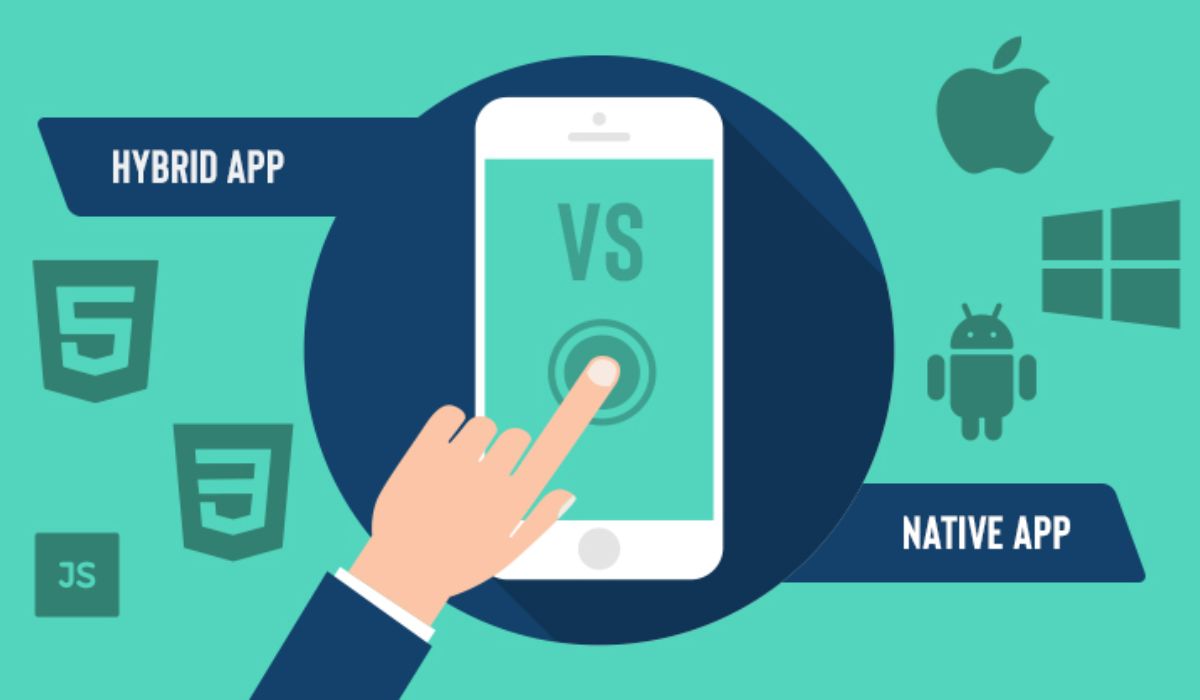If you’re building an app in 2025, there’s one big question you’ll run into right away:
Do we build a native app or a hybrid app?
If you’ve Googled it, you’ve probably already seen a bunch of developer jargon that just made things worse. So here’s the straight-up version — no fluff, no buzzwords. Just what you need to know to make the right decision when it comes to Native vs. Hybrid Apps.
Native vs. Hybrid: What’s the Deal?
Native Apps
These are built specifically for one platform — Android or iOS. For example,
native Android app development means building an app just for Android devices using Kotlin or Java.
Hybrid Apps
These are built using web tech (HTML, CSS, JavaScript) and then "wrapped" to run on both Android and iOS with one codebase. It’s basically one app pretending to be two.
Why Businesses Choose Native Apps
Talking about Native vs. Hybrid Apps, if you're all about quality and performance, native wins hands down.
Speed & smoothness – Native apps are fast because they’re built for that specific device.
Full access to device features – Camera, GPS, push notifications — no problem.
Best user experience – Feels natural, runs smoothly, looks great.
Fewer bugs, better updates – Native plays better with new OS versions.
But… Here’s the Catch
You’ll pay more – Two platforms = two codebases = higher dev costs.
Takes longer – More work means a longer timeline to launch.
So yeah, native isn’t cheap. But you get what you pay for.
Why Some Businesses Go Hybrid
Talking about Native vs. Hybrid Apps, if you’re short on budget or time, hybrid can be a decent option, depending on what you need.
Cheaper to build – One codebase covers both Android and iOS.
Faster launch – Less code = less time.
Easier to maintain – One fix works for both platforms.
The Hybrid Downside?
Slower performance – Especially if your app is complex or uses heavy visuals.
Limited features – Some device features don’t work as well.
“Almost native” UX – It looks like an app, but it doesn’t always feel like one.
If you’ve ever used an app that felt a bit clunky or slow to respond, chances are it was hybrid.
So… Which One’s Right for You?
Here’s the real answer when it comes to Native vs. Hybrid Apps: It depends on what matters most to your business.
Let’s break it down.
Budget tight?
Go hybrid — get to market fast, validate your idea, and upgrade later if needed.
UX is everything?
Native. No question. If your users expect a smooth, high-end experience, don’t cut corners.
Complex features?
Native. If your app needs serious access to the phone (camera, sensors, Bluetooth, etc.), hybrid might let you down.
Need to launch yesterday?
A hybrid can get you there quicker — but again, know the trade-offs.
Real Talk: What We Recommend
Here’s our honest take:
- If you’re just testing the waters, go hybrid.
- If you already have customers, traction, or a clear product idea, invest in native.
- If Android is your main market (and in many countries, it is), native Android app development gives you better control and performance.
When it comes to Native vs. Hybrid Apps, you don’t need to impress your dev team — you need something that works for your users and your business.
Final Word: Choose Based on Your Goals, Not Just the Tech
There’s no “best” option overall — only the best for you, when it comes to Native vs. Hybrid Apps.
An app that works like butter but drains your budget might not make sense for a small startup.
A cheap hybrid app that crashes every other day? Not great for your reputation.
Make the call based on your priorities: performance, speed, cost, and long-term goals.
Not Sure What to Build?
That’s where we come in.
When it comes to Native vs. Hybrid Apps, we help businesses figure out the smartest, most cost-effective way to build apps — whether that’s native Android app development, hybrid, or something in between.
We’re not here to sell you a bloated project. We’ll tell you what makes sense, what doesn’t, and how to get the most value out of your investment.
Contact us today, and let’s build something that works for your business.
